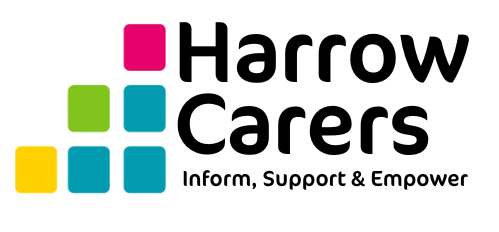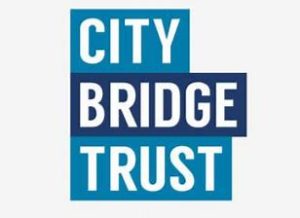Jargon Buster
Harrow Carers Jargon Buster
As a carer there’s plenty of strange words thrown around that may not make a lot of sense to you when you first hear them, below we’ve put together a list of all of the most commonly used terminology in the care sector by the council, institutions and other carers.
Assessment:
Process of making a judgement about something.
Advocacy:
Enablement of you to get support you require independent of the local council.
After-care:
Support that is provided in-house or in the community post-hospitalisation discharge.
Autism:
Mental condition characterised by difficulty of communication and relations with other people.
B
Benefits:
Financial aid provided due to situational impact on an individual’s health or other circumstances.
Behaviour Disorder:
Health conditions causing impact on behavioural actions socially and emotionally.
C
Care Plan:
A plan created after an assessment stating what your care needs are and how they will be met.
Carer:
A person whom provides unpaid support to another individual who is ill, disabled or struggling, thus would not manage without their aid.
Care Worker:
A person of whom is paid to support an individual who may be ill, disabled or struggling and would not be able to manage without his help.
Community Care Services:
Social care services that can help individuals live fully and independently rather than staying in a care home.
Care Act:
A UK Law passed in 2014 setting out the definition of care and carers entitlement from local councils.
Carer’s Allowance:
Weekly payment by the government to carers, dependent on hours of care, personal salary and the benefits you provide with your care to the cared for.
Carer’s Assessment:
Assessment of a carers needs by the local council. The needs assessed are of the carer themselves and not those separate to the needs of the person being cared for.
Cognitive Behavioural Therapy:
Therapy form to help manage problems via a change in the way of thinking.
Confidentiality:
Keeping information regarding someone safe and private from others.
Consent:
Agreement of permission for someone to act.
Councillor:
A professional who is trained to listen and aid through problems or issues being faced and the emotions they evoke.
D
Direct Payment:
Money paid directly to yourself or paid out directly to someone else by you on a regular basis.
Degenerative Condition:
A condition that worsens over time.
Discharge (Hospital):
Hospital’s allowance of people to leave and return home.
Dementia:
A syndrome concerning an ongoing decline of brain functionality including memory loss, thinking speed, movement slowdown and language difficulties.
Developmental Disability:
A form of disability which affects development of a person’s brain, causing difficulties throughout their whole life.
Duty of Candour:
When a situation that has gone wrong concerning health or social care provided to you, the provider has a legal duty to be open and explain the situation to you.
E
Eligibility:
Determination of whether or not you meet criteria for certain services.
F
Formal Patient:
Someone who is held hospitalised and is not allowed to leave for the safety of themselves and others.
Frailty:
Condition of becoming more susceptible to illness or injury and difficulty recovering as you get older.
G
Gateway Worker:
A mental health worker who helps deal with problems like mild depression, anxiety or stress etc.
H
Home Care:
Care provided in your own home by a paid care worker to help with daily tasks. Also known as domiciliary care.
Handy Persons Service:
Local service offering aid with small, practical tasks at home.
Homeshare:
An arrangement of someone living with another person who required aid in their own home with minor tasks such as cleaning.
I
Independent Living:
Living in your own home independently with the level of assistance received being by choice.
Impairment:
A physical or mental issue that someone is born with.
Intermediate Care:
Care services aimed at keeping conditions stable and the cared for independent at home rather than progressively declining in condition until hospitalisation.
J
Joint Assessment:
Having an assessment of a carer and the cared for’s needs simultaneously.
K
Kindship Care:
Where a family member or friend cares for a child full time due to the parents not doing so.
L
Learning Disability:
Where a brain impairment causes difficulties in learning how to communicate, understand complex information or learn new skills.
M
Means-Tested Contribution:
Financial assessment of means to recognise level of contribution the council will provide in terms of benefits or other entitlements.
N
Named Social Worker:
A single social worker that is allocated to an individual as a point of contact.
Necessary Care:
Care/support provided by an unpaid carer to help the dependent do what they are unable to do independently.
Needs Assessment:
A consideration of what needs you have based on age, disability and illness and if they are being facilitated.
Neurotypical:
Description of an individual who has a brain which operates in a typical manner.
Next of Kin:
Your closest relative by marriage or blood.
Nominated Individual:
A person who leads a care service and ensures the services are safe and of a good quality, judged by the CQC.
O
Older People:
Those typically over the age of 50 to most institutions.
P
Personal Assistant:
Someone you choose to support you in the way you deem best.
Personal Budget:
Allocated means to pay for your care support as outlined by your assessment.
Preventative Services:
Services to prevent one or more serious issues developing from a currently not so problematic situation(s).
Q
N/A
R
Respite Care:
A service to give carers a break by provision of short-term care for the dependent.
Review:
A re-assessment of your care needs to determine if your needs are successfully being met following initial assessment.
Rights:
What you are entitled to legally as a citizen.
Risk Assessments:
An assessment of your health, safety, wellbeing and ability to manage daily routine tasks.
S
Safeguarding:
Process of ensuring adults that are at risk are not being mistreated, abused or exploited.
Self-Assessment:
Assessment of one self in regards to your own circumstances and why you need support.
Signposting:
Recommendation of information you may find useful by us for you to explore.
Social Care:
Aid required such as personal care or practical assistance to live independently and comfortably.
T
Tertiary Care:
Specialist in health and care for the requiring specific issues. These forms of care often have equipment specific for the issue’s needs.
Transfer of Care:
When moving from one form of care area to another a transfer occurs.
Triage:
Process of assessment to decide if urgent medical attention is needed or how long such can be delayed.
U
Urgent Care Centre:
A centre for illness or injury staffed by nurses and GPs. An alternative to A&E services.
V
Voluntary Sector:
Organisations such as our own that are independent of government and local councils action.
W
Walk-in Centre:
A NHS centre accessible without an appointment to treat illness or injuries that are not serious enough to go to A&E.
Wellbeing:
Encapsulates your physical and mental health, control over daily life and relationships.
X
N/A
Y
Young Carers:
A young person aged 18 or under that is a carer, aka looks after someone who depends on them for support.
Z
Zero-Day Admission:
When you visit hospital but end up not needing to stay for a night or more.
0-9
N/A
If there’s any words you think we’ve missed, just tweet us at @HarrowCarers with the hashtag #WhatDoesThisMean?











